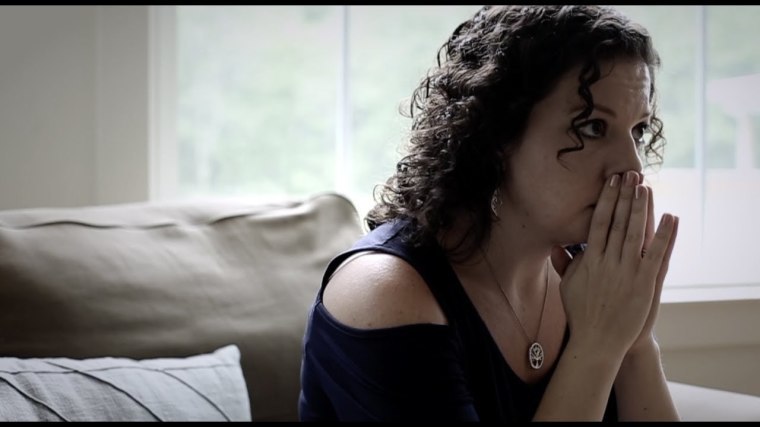Sexual abuse survivor warns churches: Failing to preach repentance, sin 'dangerous' to victims

In an era of political correctness within evangelicalism, churches that are serious about ending sexual abuse must address sin and repentance from the pulpit instead of focusing solely on forgiveness, a survivor of childhood sexual abuse has said.
"Preaching repentance and sin is extremely important, but there's such a tendency within the church to want to love the abuser and forgive them right away, and we skip the part where we demand that they repent for their sin," Jennifer Greenberg told The Christian Post. "What these churches don't understand is that it's dangerous to the victim and also not doing the abuser any favors."
"When pastors preach on repentance, they're telling every victim in the congregation how they will react to abuse in their church: Will we just sweep it under the rug? Or will we demand they change their way of life and behavior?" she continued. "If you have solid biblical teaching on repentance, you're encouraging victims to come forward because they'll have the assurance the church won't recognize the continuation of it."
Greenberg speaks from personal experience: Her earliest memories are of sexual, psychological, and spiritual abuse at the hands of her churchgoing father.
"I didn't realize I was being abused, because I had just grown up in that environment," she said. "I often felt unsafe but it never crossed my mind that my dad was abusive or that this wasn't normal."
Though he didn't live out a "single biblical principle," Greenberg's father read the Bible and studied theology books, insisting his family attend church every Sunday.
"By God's grace, he led my family to extremely biblical churches; churches that loved the Gospel and were scripturally rooted," she said. "My father is an extremely smart and educated person, so we went to churches that were intellectual and had complicated theology and learning."
"But that worked to his disadvantage because what happened was, I learned that my Father in Heaven was nothing like my biological father," she said. "Even when I didn't understand what was happening, I was presented with a God who was gentle and kind and loving, but then six days a week I had a father who would abuse me."
As she entered her teenage years and began to understand sexuality, Greenberg came to the devastating realization that her father was a predator. Desperately lonely, she considered ending her own life.
"I kept thinking, 'if I can just make it to 18, I'll be okay,'" she recalled. "But when I was 15 and had a new maturity level and understanding of adult behaviors, those last three years seemed like an eternity. I felt like I couldn't do it anymore. At the same time, I was really worried that if I died by suicide, I wouldn't go to Heaven; that God, just like my earthly dad, would abandon me."
With nowhere else to turn, Greenberg prayed: "God, you've got to give me a sign that you love me and that I'm not alone."
At that moment, she clearly heard the voice of God say, "I will never leave you or forsake you."
"I decided to live for the sake of my mom and sisters; I decided I was going to survive, and that's why I'm here today," she said. "The next three years were some of the hardest of my life; my dad's violence continued as did his sexual abuse and psychological abuse, but I held on to those words God spoke to me, and they carried me through that time."
Eventually, Greenberg went off to college, where she met her husband, Jason, who she described as a "sweet, thoughtful, loving man." Early marriage, she said, was "culture shock."
"For the first time, I was in a home with a man who wasn't violent or perverted and I didn't feel like prey. He was interested in my feelings and ideas and he wanted me to have a career, and those were things I'd never experienced before."
Presented with the dichotomy of her loving husband and that of her abusive father, Greenberg started to fully understand just how damaging her childhood had been. She began to write a series of letters to her husband, explaining her painful past and attempting to work through her trauma.
"Suddenly, I just sort of had the emotional permission to write, and my creativity just exploded," she said. "I wrote thousands of words; they just wouldn't stop coming. I was chronicling my own self-discovery."
Now, her letters are being published in book form: Not Forsaken: A Story of Life After Abuse: How Faith Brought One Woman From Victim to Survivor (The Good Book Company), releasing Aug. 20. In it, she details her story and shares how her faith brought her through the darkest of situations. Faith, she argues, can enable survivors of trauma to navigate issues of anger, guilt, forgiveness, love, and value.
"Recovering from abuse is like going through the five stages of grief," she said. "There's depression, denial, anger, and so one. Anger is not a sin; in fact, if you're angry at evil, you're actually being like God because we read in the Bible God is angry with the wicked every day. For a long time, I suppressed my anger because I was scared of it. Once I realized that I was justifiably angry over being abused, I was able to stop suppressing it and find freedom and healing."
Read more from, "Sexual abuse survivor warns churches: Failing to preach repentance, sin 'dangerous' to victims," on The Christian Post.